Iran Regime To Execute More Protesters In Esfahan Province
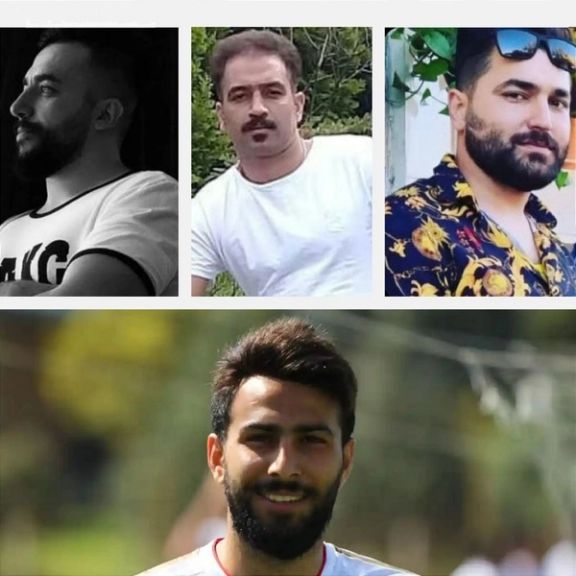
Concerns are growing over the possible execution of three more detained Iranian protesters, as reports say they have been transferred to solitary confinement.

Concerns are growing over the possible execution of three more detained Iranian protesters, as reports say they have been transferred to solitary confinement.
Majid Kazemi and Saeed Yaqoubi arrested in Esfahan are reportedly taken to solitary confinement which is suggesting that they would be hanged soon.
Colleagues and family members of Majid Kazemi, who is sentenced to death have made a video appeal Saturday, demanding the release of the young protester.
In an audio file from prison on Friday, Majid Kazemi said he was forced to make false confessions under duress.
Saeed Yaqoubi and Saleh Mirhashmi are two other defendants in the case known as “Esfahan House” who have received the death penalty along with Majid Kazemi.
Saleh Mirhashmi said earlier that he has been tortured in detention and the agents have injured his ears and broken his teeth while beating him.
At the same time, Amir Nasr-Azadani, who used to play for several Iranian football teams, has released an audio file asking the sports community to support him.
Nasr-Azadani is another defendant in the case who earlier received a 26-year jail term. In his audio file, the former football player asked athletes and his friends to be his voice and support him.
The Islamic Republic accused several people in connection with an armed attack on November 16 on “Esfahan House” neighborhood claiming that two security forces and a police officer were killed by protesters.
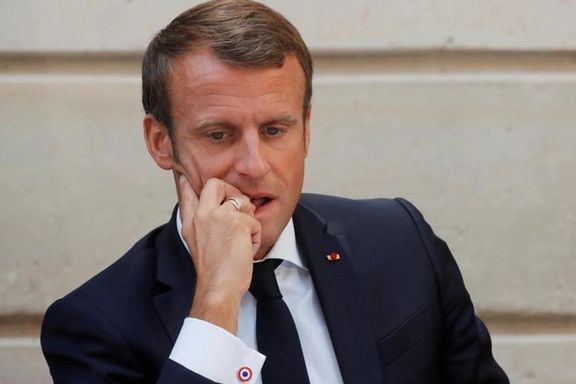
The execution of British-Iranian dual national Alireza Akbari is a heinous and barbaric act, French President Emmanuel Macron said on Saturday.
Macron said he stood in solidarity with Britain which has condemned the execution, which defied British and US calls for the 61-year-old Akbari's release after he was handed a death sentence on charges of spying for Britain.
“His name is added to the too long list of victims of repression and the death penalty in Iran. Solidarity with the United Kingdom. Solidarity with the Iranian people,” Macron said.
Macron’s statement came after both the British prime minister and foreign secretary harshly condemned Tehran’s act.
"I am appalled by the execution of British-Iranian citizen Alireza Akbari in Iran," British Prime Minister Rishi Sunak said on Twitter. "This was a callous and cowardly act, carried out by a barbaric regime with no respect for the human rights of their own people."
British Foreign Secretary James Cleverly also tweeted to say: "This barbaric act deserves condemnation in the strongest possible terms. This will not stand unchallenged."
In an audio recording from Akbari and broadcast by BBC Persian and Iran International, he said he had confessed to crimes he had not committed after long interrogation and extensive torture.
"After more than 3,500 hours of torture, psychedelic drugs, and physiological and psychological pressure, they took away my will. They drove me to the brink of madness. They instilled in me what they wanted and forced me to make false confessions at gunpoint and threats of death," Akbari said.

While Islamic Republic officials predicted a bad winter in Europe, offices, and schools in Iran have been closed for days due to a serious natural gas shortage.
Gas supplies to homes, which the government tried to protect in past cold season crunches, have also been interrupted in some regions.
In addition to power outages and the closure of some CNG (Compressed natural gas) stations due to the shortages, the crisis is getting graver day by day and it is estimated that natural gas will be cut off in more regions of Iran this week.
However, Iran’s Foreign Minister Hossein Amir-Abdollahian, said during his meeting with the Lebanese authorities on Friday that Iran is ready to send diesel fuel to Lebanon claiming that the country already exports natural gas to Iraq and some other countries as well.
Several social media users reacted to Amir-Abdollahian's comments, saying that the Islamic Republic is begging Lebanon to accept Iran's diesel, while people in Iran do not have natural gas amid the cold snap.
Iranians on social media believe sending of fuel to Lebanon in a situation that Iran is facing an energy crisis, shows the adventurism of the Islamic Republic in the region.
With natural gas shortage, Iran resorts to burning mazut at power stations, which is an extremely polluting fuel compared with cleaner diesel.
The natural gas shortage, which had put more than half of the cities in a semi-closed state in the past days, continued Saturday. In capital Tehran, in addition to schools and educational centers, government offices except for banks were closed.
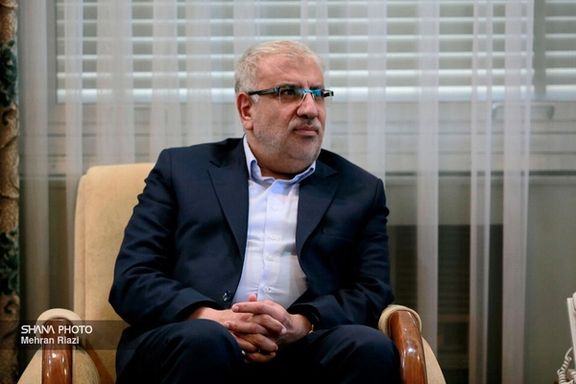
In the provinces of Mazandaran, Esfahan, Qazvin, East Azarbaijan, Alborz, Gilan, Qom and South Khorasan, offices, organizations, schools, and universities were shut down.
Amid this crisis, however, Iranian Oil Minister Javad Owji, went as far as asking people to report "suspicious cases of excessive gas consumption by neighbors" or "enemies' movements to disrupt the gas network" to the intelligence ministry or the IRGC intelligence.
This was a typical example of Iranian officials resorting to threats by intelligence agencies and claims of “enemy” activity as the reason for a problem entirely due to their shortcomings.
Iran has failed to invest in its gas production sector, although it has the world’s second largest reserves, while with extremely cheap prices for consumers, usage has been increasing ever faster. The distribution network also needs upgrades as more than 25 percent of the gas is lost during transfer.
Iran's gas production and extraction capacity is limited to around 800 million cubic meters per day.
According to the ministry of energy, about 650 million cubic meters are consumed in the domestic, commercial, and administrative sectors, however, the data has changed a lot in different years and contradict international estimates.
The international energy organizations say less than 40% of Iran's natural gas is consumed at homes, but the Islamic Republic is trying to blame the shortage of gas on home users.
Some Iranian officials including Mohammad Marandi, who was a member of the Iranian nuclear negotiating team, have been saying since last summer that "a hard winter in Europe" will force European powers to come back to the negotiating table. Marandi had predicted: "The winter is coming, and the EU will have to face a paralyzing energy crisis."
Hard-line officials were making these claims while Iran does not produce enough to export and has no way of shipping it to Europe.

Iran summoned the British ambassador in Tehran Saturday to protest “the unconventional interferences, including in the security arena” of the Islamic Republic.
The Iranian regime announced earlier in the day that it had executed a former deputy defense minister and a dual British-Iranian citizen, soliciting a harsh condemnation by London.
"I am appalled by the execution of British-Iranian citizen Alireza Akbari in Iran," British Prime Minister Rishi Sunak said on Twitter. "This was a callous and cowardly act, carried out by a barbaric regime with no respect for the human rights of their own people."
Relations have deteriorated with the West after talks to restore the 2015 nuclear deal ended without a resolution in September, followed by deadly government violence against Iranian protesters that is estimated to have killed around 500 civilians. The government has also executed four protesters after holding sham trials.
Tehran has also supplied kamikaze drones to Russia, which are used against Ukraine’s civilian targets.
Fars news website affiliated with the Revolutionary Guard reported that Iran’s foreign ministry told the British ambassador Simon Shercliff about his country’s “subversive” activities incompatible with the national security of the Islamic Republic.
Shercliff has been summoned by the foreign ministry six times since antigovernment protests began in Iran in mid-September. Tehran rejects all Western criticism of its human rights violations and says the unrest is fomented by “enemies”, a term usually referring to the United States and its allies.
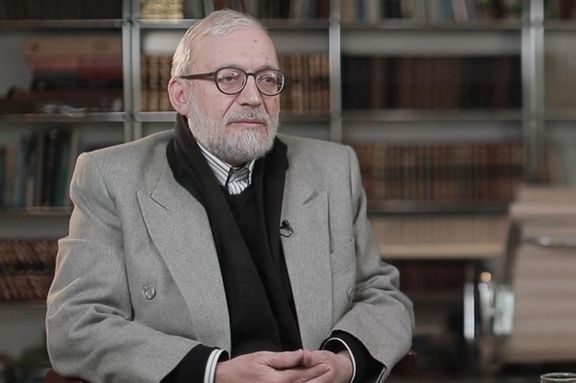
Iranian conservative politician and former diplomat Javad Larijani has defended stoning for adultery, saying it is a good Islamic law protecting “family values.”
Stoning, or lapidation, is a method of capital punishment where people throw stones at a person until the subject dies from blunt trauma. It is attested as a form of punishment for unlawful sexual intercourse.
In an interview with Fars website of the Revolutionary Guard Saturday, Iran’s former Secretary of High Council for Human Rights claimed some good laws have been passed by the Islamic Republic to protect women's rights.
He said stoning is one of the good Islamic laws and has been a very nice deterrent so far.
“When we say our women should enter the community, we should have provided them with a very safe work and social environment,” added Larijani stressing that “Stoning is a very important restraining law to protect the marriage contract of families.”
Stoning is not mentioned as a form of capital punishment in the canonical text of the Quran. However, Islamic scholars have traditionally postulated that there is a Quranic verse about it.
Death by stoning came into force in Iran after the 1979 revolution, but the judiciary placed a moratorium in 2002 and it was replaced by the death penalty more than a decade ago.
Victims are put in a ditch filled with sand. The stoning then begins, with rocks relentlessly pummeling the victims until they die.
A doctor recruited to oversee the execution will pause the stoning periodically to check whether the victim is dead. If not, the battering continues.
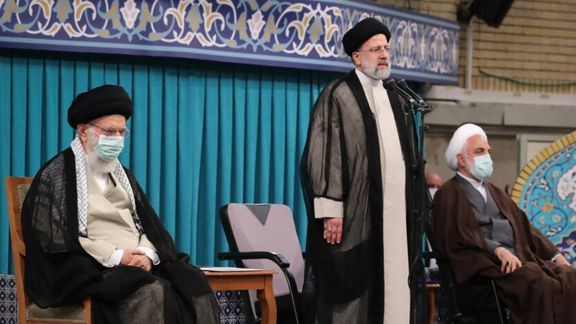
Political pundit Mehrdad Lahouti in Tehran says the divide between officials and the people is so serious as if there was a concrete wall between them.
Lahouti also criticized the Iranian government for not communicating with the world in the right way. Referring to the ideological divide between Iran and the international community, He said: "We should communicate with the world while preserving our values." Lahouti added in his interview with Nameh News website that "In an interconnected world, we cannot remain isolated."
Without mentioning the ongoing protests in Iran, Lahouti said: "The current political atmosphere has convinced some Iranian officials that the system of governance should be changed." He added that this s in fact what the Iranian nation is demanding.
Explaining what he means by changing the system of governance, Lahouti said: "First of all, we need to break the international consensus against Iran by communicating with the world. The second point is that we need to reform our economic structure." He explained that the government currently controls 80 percent of the economy, and this means it does not trust the people.
"The same distrust also exists in the political space. The government does not seek the people's views in matters such as accepting the terms of the FATF while the parliament and the Guardian Council are still undecided about that. The same is also true about the JCPOA."
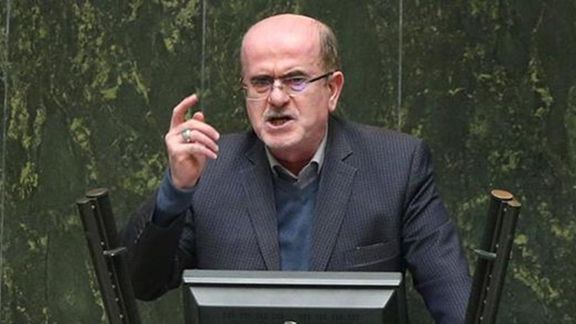
The Financial Action Task Force is an inter-government financial watchdog that has blacklisted Iran, demanding legal reforms to prevent money laundering and financing of terrorism.
Tehran has dragged its feet since 2017 on passing compatible legislation.
Meanwhile, the secretary general of the reformist Jomhouriat party Rasoul Montajabnia warned the government by saying: "You cannot silence the people by using force against them." Referring to harsh treatment of jailed protesters in Iran, he said, "No one can be convinced by use of force." He reiterated: "By use of force you might be able to silence the people, but you cannot convince them and the fire under the ashes will flare up once again on the smallest pretext."
Montajabnia quoted Iranian officials that hundreds of protesters have been killed and thousands wounded so far, and a lot of damage done to public assets. However, he continued, "The hardest blows were dealt to the prestige and image of the Iranian political system and the Islamic revolution while at the same time, a vast divide was created between officials and the people, particularly the Iranian youth."
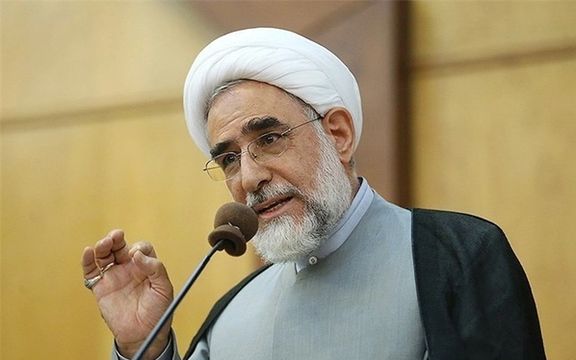
"People's religious beliefs also received a hard blow, and the resulting suspicion of the government's intentions can be hardly compensated for," the reformist figure said.
Referring to the country's current all-conservative political establishment, Montajabnia charged that "A particular gang has taken over the political system by pushing everyone else aside and dividing the people into outsiders and insiders."
A report on Khabar Online website also referred to this divide and asked Expediency Council Ahmad Tavakoli about prospects. Tavakoli issued a "red warning" to the government about this divide and said that the poor might take over the streets.
Khabar Online also quoted Iranian economist Mohammad Khoshchehreh as saying that the current situation is the outcome of the regime's miscalculation in its attempt to concentrate power with conservatives. He said: "Some Iranian politicians believe that people can be controlled better when they are poor. When they are better off they begin to question the government. Now a majority of Iranians have become poor. Part of the middle class has disappeared. Only one fourth of Iranians can afford buying milk. These are serious threats that cannot be ignored."
He added that generally, the pattern of economic growth and development in Iran has become problematic and the system cannot go any further before these problems are solved.